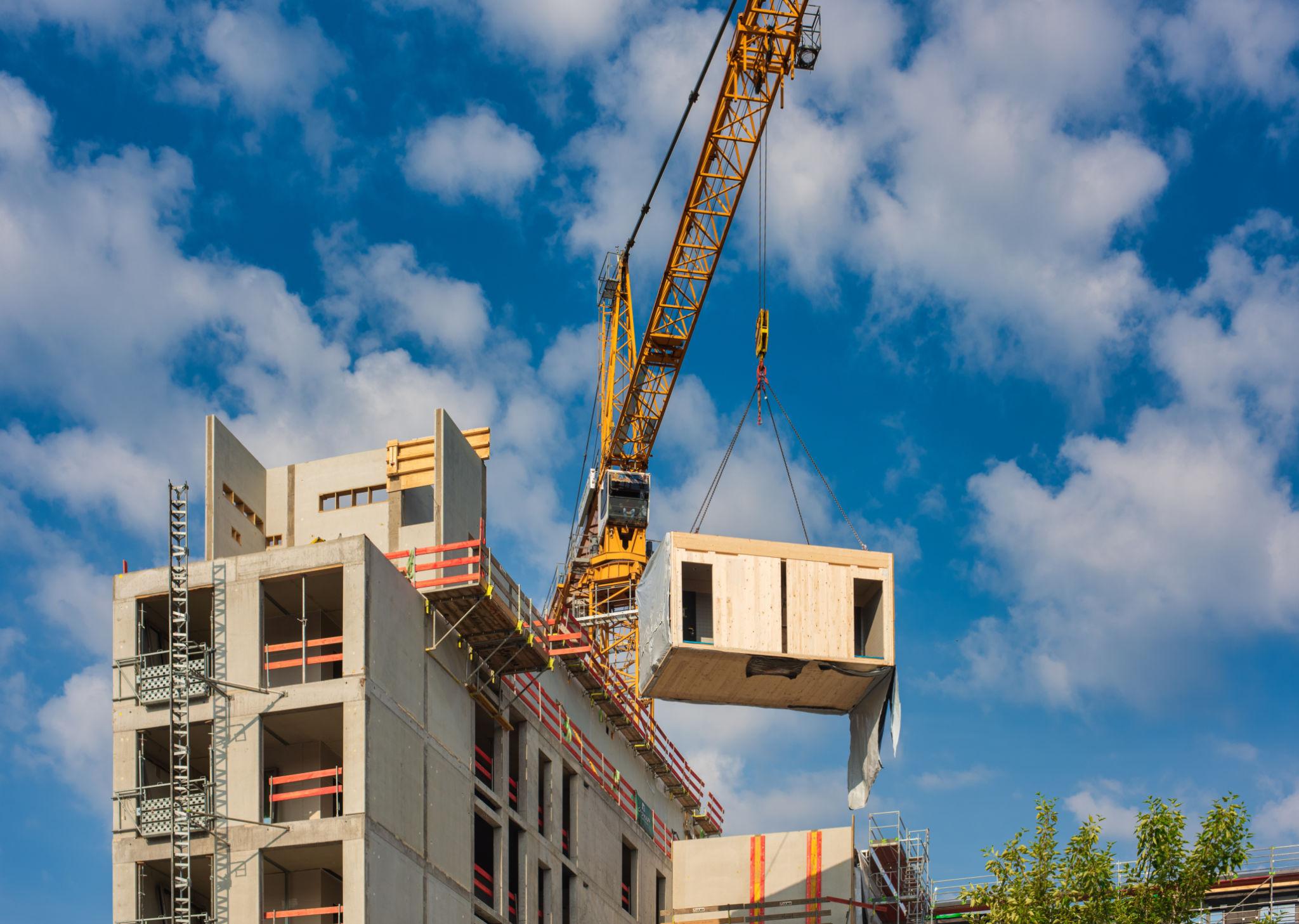What is Modular Construction?

Modular construction is defined as the process where a building is constructed off-site using the same standards and materials as conventionally built facilities- but in half the time. These buildings are produced in ‘modules’ and put together on-site. Modular construction is a method of building in which structures are constructed in sections away from the construction site before being transported to the desired location for installation into a final building design. This type of construction has been used for decades but is becoming increasingly popular for a wider range of projects, including office buildings, hospitality structures, and residential properties.
The concept of modular construction is reminiscent of a popular childhood pastime, the LEGO sets. The construction process of modular construction, like legos, includes transporting various Prefabricated structures, which are then connected on-site to develop a new complex structure.
How are modular buildings Constructed?
Modular buildings are manufactured in sections at factories. These sections are then transported to the construction site and installed into the final building design. Typically, 60-90% of the work is completed at the factory before any on-site construction takes place. This allows for a shorter construction timeline and reduced costs compared to traditional methods. The process of modular construction is completed on-site using inter-module connections to tie all the ‘modules’ or units together in an efficient manner.
The factory environment also allows for greater quality control, as modular buildings are not subject to inclement weather conditions or other factors that can delay or disrupt traditional construction projects. In addition, the use of prefabricated components can help to minimize waste and reduce environmental impact.
The benefits of modular construction
There are several benefits to using modular construction methods. As mentioned above, this type of construction can help shorten a project’s overall timeline and reduce costs. In addition, the factory setting in which modular buildings are constructed can help to improve quality control and minimise waste.
Modular construction is also a more sustainable option when compared to traditional methods, as it often results in less material waste and a lower carbon footprint. Additionally, because modular buildings are typically constructed off-site, there is less disruption to the surrounding area during the construction process.
Since modular construction is primarily focused on the indoor environment, this leads to improved safety and fewer accidents for the crew working on the project. This also does not hamper the air quality as the potential of moisture getting trapped in walls is eradicated.
How much does modular construction cost?
The cost of modular construction usually depends on the type of materials used and the scale of the project.
Some other factors which affect the pricing of modular construction are the inclusion of internal fixtures and fittings. However, case studies have proven that modular construction offers significant savings as compared to traditional construction because of factors such as weather not being a problem or less delay in project schedules due to the ability to work on the structure of-site even if the site is being prepared.
Examples of modular construction projects
Some notable examples of modular construction projects include:
- The 22 Bishopsgate skyscraper in London was completed in 2019 and is the tallest modular building in the world.
- The Marriott Modular Hotel in New York, California, was constructed using shipping containers and opened in 2017.
- The New Songdo International Business District in South Korea was built using modular construction methods and completed in 2015
- The world’s first modular apartment building was constructed in Brooklyn, New York, in 2016.
The future of modular construction
In most countries, the concept of modular construction is still an outliner, but it is also giving strong signs of becoming a genuine broad-scale disruption worldwide. As the benefits of modular construction become more widely known, this type of construction will likely continue to gain popularity in the coming years. Additionally, as technology advances, it is possible that even more complex structures could be constructed using modular methods. Ultimately, modular construction is a versatile and efficient method of construction that is well-suited for various applications.
Build today with decofice! Be a part of the revolution in the construction industry.
Read More Blogs – Click Here
Discover the finest Architects, Interior Designers, and Contractors. Partner with top professionals, according to your budget and craft spaces that inspire.
The only construction app that you need. Your journey begins now for the transformation.
Decofice: A Construction app that does it all.
Join the Waitlist Program to Register as a Professional or Seller
If you are not an Architect, Interior Designer, or Contractor, then join the waitlist program.
Reach new clients and grow your business multifold with us.
Build your brand with us and reach new customers.
Share:



